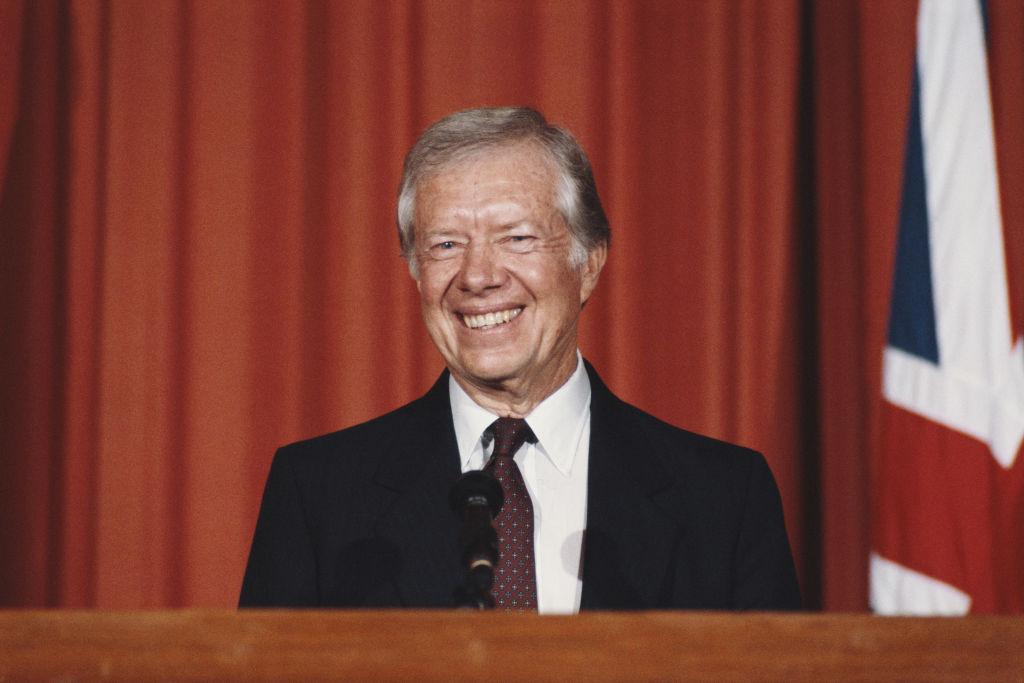Former U.S. President Jimmy Carter’s historic decision to transfer control of the Panama Canal to Panama has resurfaced as a point of contention, following accusations by President-elect Donald Trump. Carter, who passed away on Sunday at age 100, regarded the move as one of the defining moments of his presidency. However, Trump’s allegations that Carter “sold it for one dollar” have reignited discussions over the treaties that shaped U.S.-Latin American relations.
Understanding the Torrijos-Carter Treaties
In 1977, President Carter signed the Torrijos-Carter Treaties with Panamanian leader Omar Torrijos. These agreements outlined a 20-year transition period during which Panama would gradually assume full control of the canal. The treaties, implemented on December 31, 1999, also included a guarantee of permanent neutrality, ensuring the canal’s continued operation as an international trade route.
Despite fierce opposition at the time, Carter maintained that the treaties were essential for correcting historical injustices and fostering goodwill with Latin America. His administration negotiated financial aid, including $345 million in loans and military credits, to support Panama’s transition and ensure the canal’s successful management.
Trump’s Renewed Criticism
Donald Trump, in recent statements on his social media platform Truth Social, accused Carter of “giving away” the canal, a critical maritime route connecting the Atlantic and Pacific Oceans. Trump claimed that Carter’s decision weakened U.S. strategic interests and allowed foreign nations to influence the region. He has since suggested that his administration might seek to regain control of the canal.
Historians and fact-checkers, however, have refuted Trump’s claims. The transfer of the canal was a diplomatic agreement, not a financial transaction. The treaties represented a broader shift in U.S. foreign policy, prioritizing equity and collaboration over unilateral control.
Public and Expert Reactions
The controversy has sparked widespread reactions across social media. User @HistoryMatters23 commented, “The Panama Canal transfer was not a sale but a necessary step for global diplomacy. Get the facts right!” Another user, @CanalWatcher, posted, “Jimmy Carter’s decision strengthened U.S.-Panama ties. Misrepresenting history doesn’t change its importance.”
Others voiced skepticism about the motives behind Trump’s remarks. “Trump’s obsession with undoing history is alarming,” wrote @PoliticalPulse. Meanwhile, @TradeRoutesNow tweeted, “The Panama Canal is a success story under Panama’s control. These claims only create unnecessary tension.”
A more balanced perspective came from @NeutralObserver, who said, “It’s valid to question historical decisions, but false claims undermine meaningful discussions.” User @GlobalPolicyGeek added, “Carter’s foreign policy legacy deserves respect, not misinformation.”
Legacy of the Panama Canal Transfer
The Panama Canal, now a key revenue source for Panama, generates billions annually. While Chinese investments in the region have raised geopolitical concerns, Carter’s decision remains a symbol of equitable diplomacy. Historians argue that the treaties exemplify Carter’s commitment to addressing global inequities, despite the domestic political cost.



 Supreme Court Backs GOP Lawmaker in New York Redistricting Fight Ahead of Midterms
Supreme Court Backs GOP Lawmaker in New York Redistricting Fight Ahead of Midterms  Rubio Says U.S. Would Not Target School After Deadly Iran Strike Reports
Rubio Says U.S. Would Not Target School After Deadly Iran Strike Reports  Marco Rubio to Brief Congress After U.S.-Israeli Strikes on Iran
Marco Rubio to Brief Congress After U.S.-Israeli Strikes on Iran  Suspected Drone Strike Hits RAF Akrotiri Base in Cyprus, Causing Limited Damage
Suspected Drone Strike Hits RAF Akrotiri Base in Cyprus, Causing Limited Damage  Does international law still matter? The strike on the girls’ school in Iran shows why we need it
Does international law still matter? The strike on the girls’ school in Iran shows why we need it  Pentagon Downplays ‘Endless War’ Fears After U.S. Strikes on Iran Escalate Conflict
Pentagon Downplays ‘Endless War’ Fears After U.S. Strikes on Iran Escalate Conflict  Argentina Tax Reform 2026: President Javier Milei Pushes Lower Taxes and Structural Changes
Argentina Tax Reform 2026: President Javier Milei Pushes Lower Taxes and Structural Changes  Zelenskiy Urges Change in Iran After U.S. and Israeli Strikes, Cites Drone Support for Russia
Zelenskiy Urges Change in Iran After U.S. and Israeli Strikes, Cites Drone Support for Russia  U.S. Military Strikes on Iran Complicate Xi-Trump Summit and Expose China’s Energy Risks
U.S. Military Strikes on Iran Complicate Xi-Trump Summit and Expose China’s Energy Risks  Israel Prepares Weeks-Long Military Campaign Against Iran Amid Escalating Air Strikes
Israel Prepares Weeks-Long Military Campaign Against Iran Amid Escalating Air Strikes  Israel Strikes Hezbollah Targets in Lebanon After Missile and Drone Attacks
Israel Strikes Hezbollah Targets in Lebanon After Missile and Drone Attacks  U.S. Deploys Tomahawks, B-2 Bombers, F-35 Jets and AI Tools in Operation Epic Fury Against Iran
U.S. Deploys Tomahawks, B-2 Bombers, F-35 Jets and AI Tools in Operation Epic Fury Against Iran  Australia Rules Out Military Involvement in Iran Conflict as Middle East Tensions Escalate
Australia Rules Out Military Involvement in Iran Conflict as Middle East Tensions Escalate  Melania Trump Chairs Historic U.N. Security Council Meeting on Children Amid Iran Conflict
Melania Trump Chairs Historic U.N. Security Council Meeting on Children Amid Iran Conflict  EU Urges Maximum Restraint in Iran Conflict Amid Fears of Regional Escalation and Oil Supply Disruption
EU Urges Maximum Restraint in Iran Conflict Amid Fears of Regional Escalation and Oil Supply Disruption  Trump to Attend White House Correspondents’ Dinner 2026, Ending Long Boycott
Trump to Attend White House Correspondents’ Dinner 2026, Ending Long Boycott  Iran Detains U.S. Citizens Amid Escalating Conflict With the United States and Israel
Iran Detains U.S. Citizens Amid Escalating Conflict With the United States and Israel 































